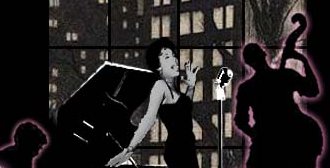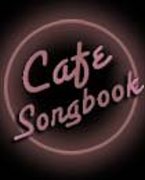Welcome toCafe SongbookInternet Home of the |
 |
 |
| Home || Songs || Songwriters || Performers || Articles and Blogs || Glossary || About Cafe Songbook || Contact/Submit Comment | |
| Search Tips: 1) Click "Find on This Page" button to activate page search box. 2) When searching for a name (e.g. a songwriter), enter last name only. 3) When searching for a song title on the catalog page, omit an initial "The" or "A". 4) more search tips. | |
Lew Brown |
||
Basic InformationBorn: Lewis Bronstein, Dec. 10, 1893, Odessa, Russian Empire [now Ukraine] Died: Feb. 5, 1958 (age 64), New York City Primary songwriting role: lyricist; also publicist and producer Co-writers: chiefly Buddy De Sylva and Ray Henderson, as part of the team, De Sylva, Brown and Henderson; Click here for a database of Lew Brown's co-writers. |
||
Overview and Commentary |
|
Sources:
|
Lew Brown was born in Odessa, Russia in 1893, but immigrated with his parents, Jacob and Etta Brownstein (or Bronstein), to the United States in 1898, living first in New Haven, Connecticut and then New York City, where he attended DeWitt Clinton high school. He began writing in his late teen years and had early professional successes when his lyrics were bought by prolific composer Albert von Tilzer, whom he met as early as 1912, for his melodies. The two went on to write songs for shows like Hitchy-koo (1917), which was interpolated into the war-time ballad "I May Be Gone for a Long, Long Time," and The Greenwich Village Follies (1920). Between 1922 and 1925, Brown collaborated successfully with several writing partners including Ray Henderson, and in 1925, they joined with the already widely published lyricist B. G. (Buddy) De Sylva to form the songwriting trio that became famous as De Sylva, Brown and Henderson. Their first Broadway score was for George White's Scandals of 1925, followed by the Scandals of 1926, which included "The Black Bottom," so emblematic of the Twenties, and "The Birth of the Blues," now an American standard. In September 1927, the team, with Henderson music and De Sylva/Brown lyrics, had another major Broadway hit with the show Good News, which included such songs such as "The Best Things in Life are Free" and "Varsity Drag." Following the success of Good News, the now famous group started a music publishing company bearing its own name. Even though their partnership lasted only six years and all went on to successful but separate careers in New York and Hollywood, all three are remembered primarily as part of this songwriting team. Their names taken together have become synonymous, as William Zinsser has put it, with "the mindless optimism of the twenties," and their songs the perfect expression of the temper of that time, songs such as " You're the Cream in My Coffee," "Life Is Just a Bowl of Cherries," I'm a Dreamer, Aren't We All?"), "(Keep Your) Sunny Side Up," etc. Zinsser adds:
Ken Bloom points out how "the threesome's music exemplified the Roaring Twenties with its emphasis on speed and rhythm. Their songs incorporated jazz and blues into the Broadway idiom." Perhaps Brown's most popular post De Sylva, Brown and Henderson song was "Beer Barrel Polka," 1939. He wrote the words but borrowed a Czech tune for the melody, which was interpolated into the movie Yokel Boy. A standard from Brown was the 1937 "That Old Feeling," for which Sammy Fain composed a melody to accompany Brown's lyric. Over time Brown became the most prolific writer of the triumvirate with the lyrics for over 100 songs to his credit, written with collaborators such as Harry Akst, Charles Tobias. Sam Stept, Con Conrad, Moe Jaffe, Sidney Clare, Harry Warren, Cliff Friend, Jay Gorney, Louis Alter, Harold Arlen. By the time the biopic of De Sylva, Brown and Henderson -- The Best Things In Life Are Free |
|
|
|
|
|
|
| back to top of page | |
Cafe Songbook |
|
| Then and not so then -- De Sylva, Brown and Henderson songs performed in contrasting styles: 1920s and 1940s |
|
|
"Good News" by De Sylva, Brown and Henderson, recorded in 1928, by George Olsen and his Music one year after it was first heard as the title song for the songwriting trio's big hit show. |
Nat King Cole sings the De Sylva, Brown and Henderson song, "You're the Cream in My Coffee" (with the Nat King Cole trio, Oscar Moore, guitar, Johnny Miller, bass, Nat King Cole, vocal and piano, 1946). |
| back to top of page | |
|
|
|||||||||||
| back to top of page | ||||||||||||
Visitor CommentsSubmit comments on songs, songwriters, performers, etc.
Feel free to suggest an addition or correction. Please read our Comments Guidelines before making a submission. (Posting of comments is subject to the guidelines. Not all comments will be posted.) |
| To submit a comment, click here. |
Posted Comments on Lew Brown:
No Comments as yet posted |
| back to top of page |
Credits(Lew Brown page) |
Credits for Videomakers of videos used on this page:
Borrowed material (text): The sources of all quoted and paraphrased text are cited. Such content is used under the rules of fair use to further the educational objectives of CafeSongbook.com. CafeSongbook.com makes no claims to rights of any kind in this content or the sources from which it comes.
Borrowed material (images): Images of CD, DVD, book and similar product covers are used courtesy of either Amazon.com
Any other images that appear on CafeSongbook.com pages are either in the public domain or appear through the specific permission of their owners. Such permission will be acknowledged in this space on the page where the image is used.
For further information on Cafe Songbook policies with regard to the above matters, see our "About Cafe Songbook" page (link at top and bottom of every page). |
| Home || Songs || Songwriters || Performers || Articles and Blogs || Glossary || About Cafe Songbook || Contact/Submit Comment | |
© 2009-2018 by CafeSongbook.com -- All Rights Reserved |




